Amazon Rel: Understanding the Relationship Between E-commerce and Trucking
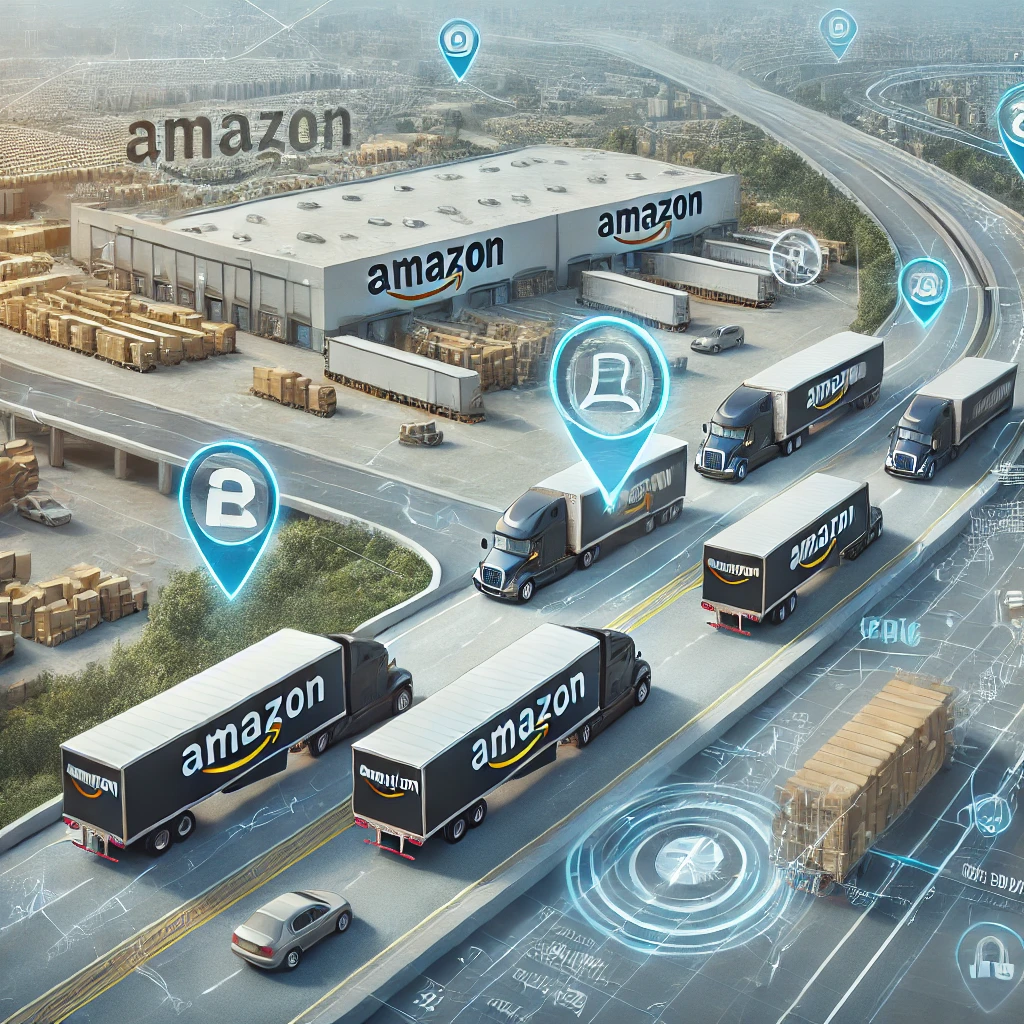
The Evolution of Amazon's Logistics Network
Early Days: Reliance on Third-Party Carriers
- Initially, Amazon relied heavily on established carriers like UPS and FedEx.
- Focus was on optimizing warehouse operations and inventory management.
Transition to In-House Logistics
- Amazon began investing in its own logistics capabilities around 2014.
- Development of Amazon Flex for last-mile delivery.
- Introduction of Amazon-branded trucks and vans.
Current State: A Hybrid Model
- Combination of in-house fleet and partnerships with various carriers.
- Amazon Logistics now handles a significant portion of its own deliveries.
- Continued relationships with major carriers and local delivery services.
Impact on the Trucking Industry Amazon Rel
1. Increased Demand for Trucking Services
- Exponential growth in e-commerce has led to higher demand for freight transportation.
- Need for more frequent, smaller shipments to fulfill rapid delivery promises.
2. Technological Advancements
- Push for real-time tracking and transparency in shipping.
- Implementation of AI and machine learning for route optimization.
- Development of warehouse automation technologies.
3. Changes in Delivery Expectations
- Shift towards faster delivery times (e.g., same-day, two-day delivery).
- Increased pressure on trucking companies to meet tight schedules.
4. Last-Mile Delivery Innovation
- Focus on solving the “last-mile” delivery challenge.
- Emergence of new delivery models (e.g., crowdsourced delivery, drone delivery).
5. Reshaping of Supply Chain Strategies
- Move towards decentralized fulfillment centers closer to urban areas.
- Implementation of predictive inventory placement.
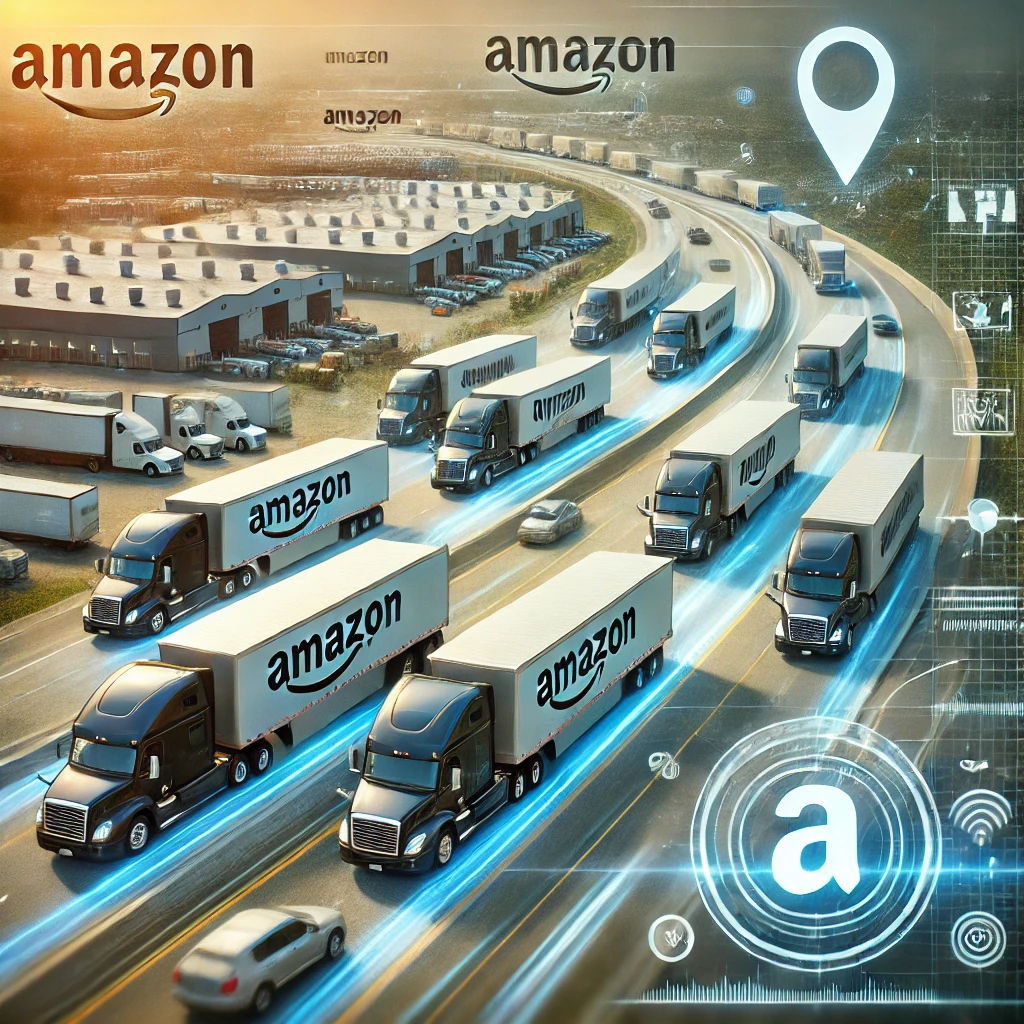
Amazon rel Trucking and Delivery Programs
1. Amazon Freight
- Matches shippers with freight carriers.
- Provides opportunities for trucking companies to haul Amazon loads.
2. Amazon Relay
- App for truck drivers to manage Amazon loads and deliveries.
- Streamlines check-in processes at Amazon facilities.
3. Amazon Flex
- Allows individuals to use their personal vehicles for package delivery.
- Complements traditional delivery methods, especially in urban areas.
4. Amazon DSP (Delivery Service Partner) Program
- Encourages entrepreneurs to start their own delivery businesses.
- Provides support and resources to run a fleet of 20-40 Amazon-branded vehicles.
Amazon Rel Effect on Trucking Operations
1. Data-Driven Decision Making
- Utilization of big data analytics to optimize routes and predict demand.
- Implementation of IoT devices for real-time tracking and maintenance.
2. Emphasis on Efficiency
- Pressure to reduce transit times and improve on-time performance.
- Focus on minimizing empty miles and maximizing load efficiency.
3. Sustainability Initiatives
- Push for more fuel-efficient vehicles and alternative fuel options.
- Exploration of electric and autonomous truck technologies.
4. Workforce Changes
- Increased demand for tech-savvy drivers and logistics professionals.
- Shift in skill requirements for warehouse and distribution center workers.
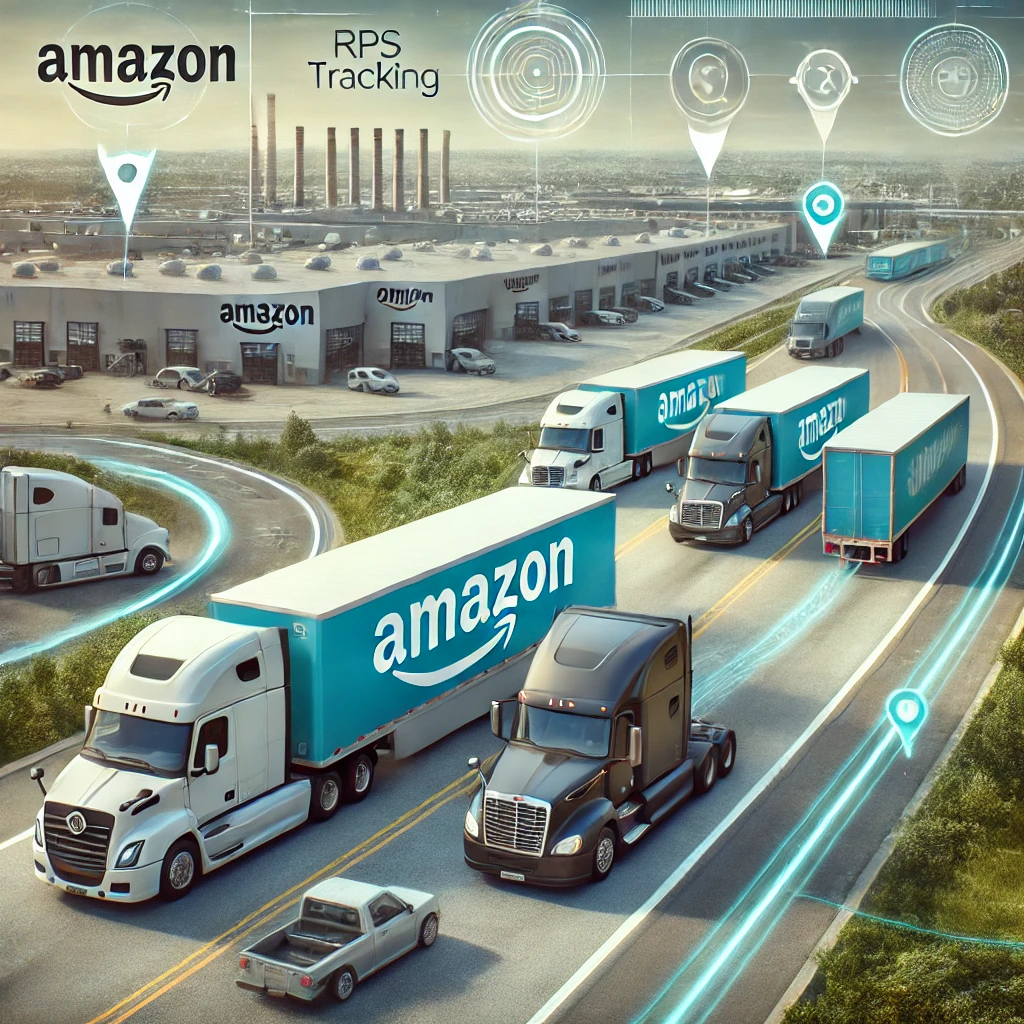
Challenges and Opportunities for Trucking Companies Amazon Rel
Challenges
- Meeting Rapid Delivery Expectations: Pressure to deliver goods faster than ever.
- Adapting to Technological Changes: Need to invest in new technologies to remain competitive.
- Fluctuating Demand: Managing resources during peak seasons and slower periods.
- Competing with Amazon’s In-House Logistics: Difficulty in matching Amazon’s scale and efficiency.
Opportunities
- Partnerships with Amazon: Potential for steady business through Amazon’s various programs.
- Specialization: Focus on niche markets or specialized shipping services.
- Technology Adoption: Leverage new technologies to improve efficiency and service quality.
- Last-Mile Innovation: Develop creative solutions for urban and rural last-mile delivery.
Case Studies: Trucking Companies Adapting to the Amazon Era
Case Study 1: Regional Carrier Success
- Company: Mid-Atlantic Express
- Strategy: Partnered with Amazon’s DSP program and invested in route optimization software.
- Result: 40% growth in revenue and 25% improvement in delivery efficiency.
Case Study 2: Technology-Driven Transformation
- Company: TechTruck Logistics
- Approach: Implemented AI-driven predictive maintenance and real-time tracking systems.
- Outcome: Reduced downtime by 30% and secured long-term contracts with e-commerce retailers.
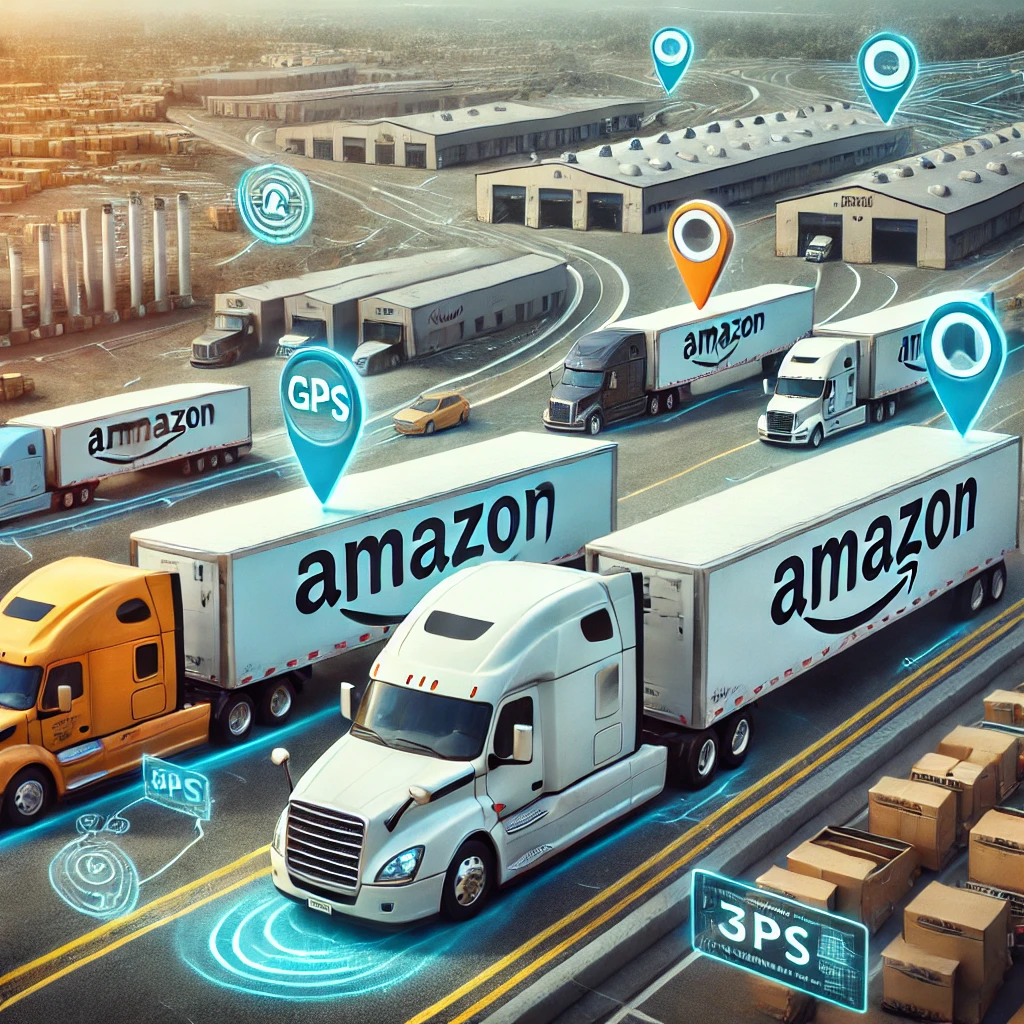
The Future of Amazon and Trucking
1. Autonomous Vehicles
- Amazon’s investment in autonomous technology companies.
- Potential for self-driving trucks to revolutionize long-haul transport.
2. Drone Delivery
- Ongoing development of Amazon Prime Air for short-distance, lightweight deliveries.
- Implications for last-mile delivery in urban and suburban areas.
3. Sustainable Logistics
- Amazon’s commitment to net-zero carbon emissions by 2040.
- Potential shift to electric trucks and alternative fuel vehicles.
4. Vertical Integration
- Possibility of Amazon further expanding its in-house logistics capabilities.
- Potential impacts on traditional trucking and logistics companies.
5. AI and Machine Learning Advancements
- Enhanced predictive capabilities for demand forecasting and inventory management.
- More sophisticated route optimization and dynamic pricing models.
Best Practices for Trucking Companies in the Amazon Era
- Embrace Technology: Invest in fleet management software, IoT devices, and data analytics tools.
- Focus on Flexibility: Develop the ability to scale operations up or down quickly.
- Prioritize Customer Experience: Implement real-time tracking and transparent communication.
- Explore Partnerships: Consider collaborating with e-commerce platforms or joining programs like Amazon Freight.
- Invest in Training: Ensure drivers and staff are skilled in using new technologies and meeting e-commerce standards.
- Optimize for Last-Mile: Develop efficient strategies for urban deliveries and residential drop-offs.
- Stay Informed: Keep abreast of industry trends and Amazon’s evolving logistics strategies.
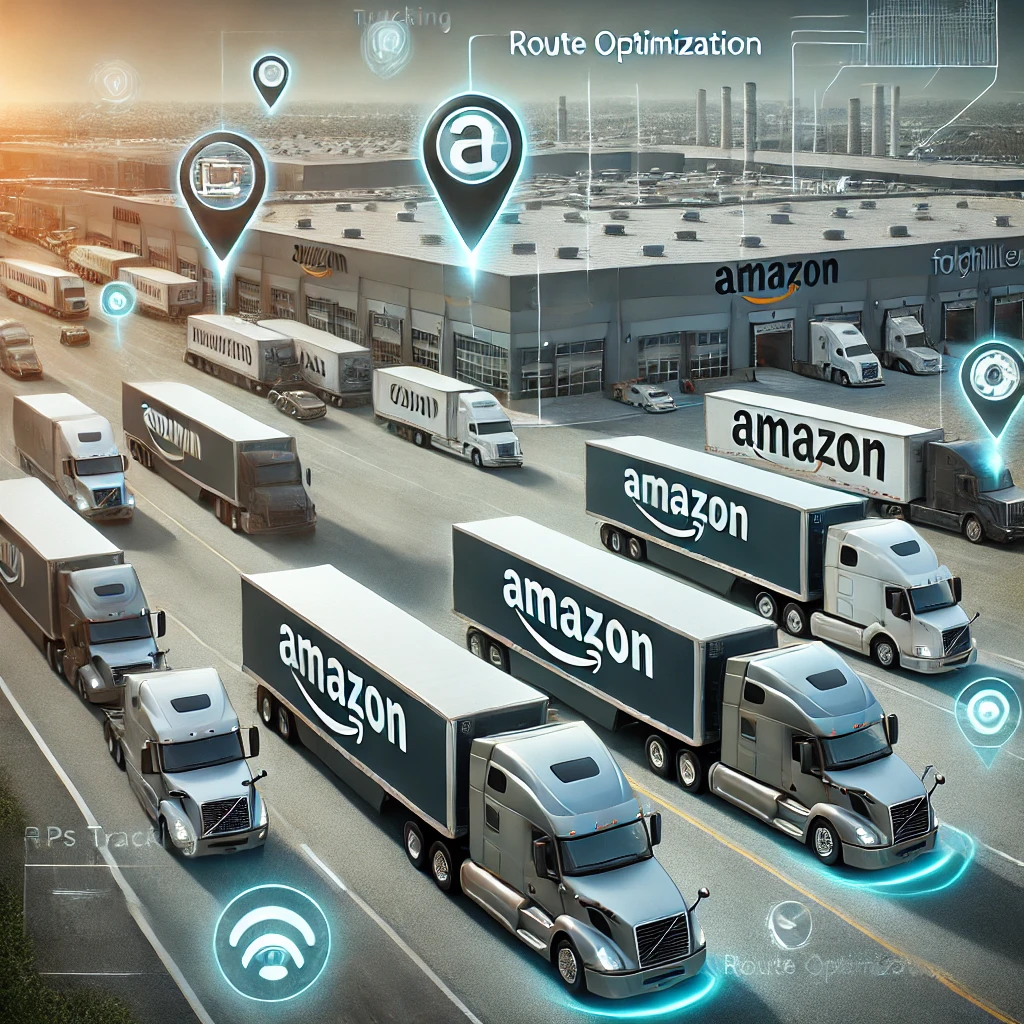
Conclusion Amazon Rel
The relationship between Amazon and the trucking industry represents a paradigm shift in how goods are moved and delivered in the modern economy. While Amazon’s influence has brought significant challenges to traditional trucking operations, it has also spurred innovation and created new opportunities within the sector.
As e-commerce continues to grow and evolve, the symbiotic relationship between online retail giants like Amazon and the trucking industry will only become more critical. Trucking companies that can adapt to this new landscape – embracing technology, focusing on efficiency, and remaining flexible – will be best positioned to thrive in this new era of logistics.
For trucking companies looking to navigate the complexities of the e-commerce-driven logistics landscape, leveraging advanced technology solutions is crucial. This is where companies like Linbis can provide significant value. Linbis specializes in developing custom logistics software that can help trucking companies optimize their operations to meet the demands of e-commerce giants like Amazon. From real-time tracking systems and route optimization algorithms to integrated platforms that can seamlessly connect with e-commerce fulfillment systems, Linbis’s solutions can enable trucking companies to enhance their efficiency, improve their service quality, and stay competitive in the Amazon era. By partnering with technology providers like Linbis, trucking companies can equip themselves with the tools needed to not just survive, but thrive in the rapidly evolving world of e-commerce logistics.
